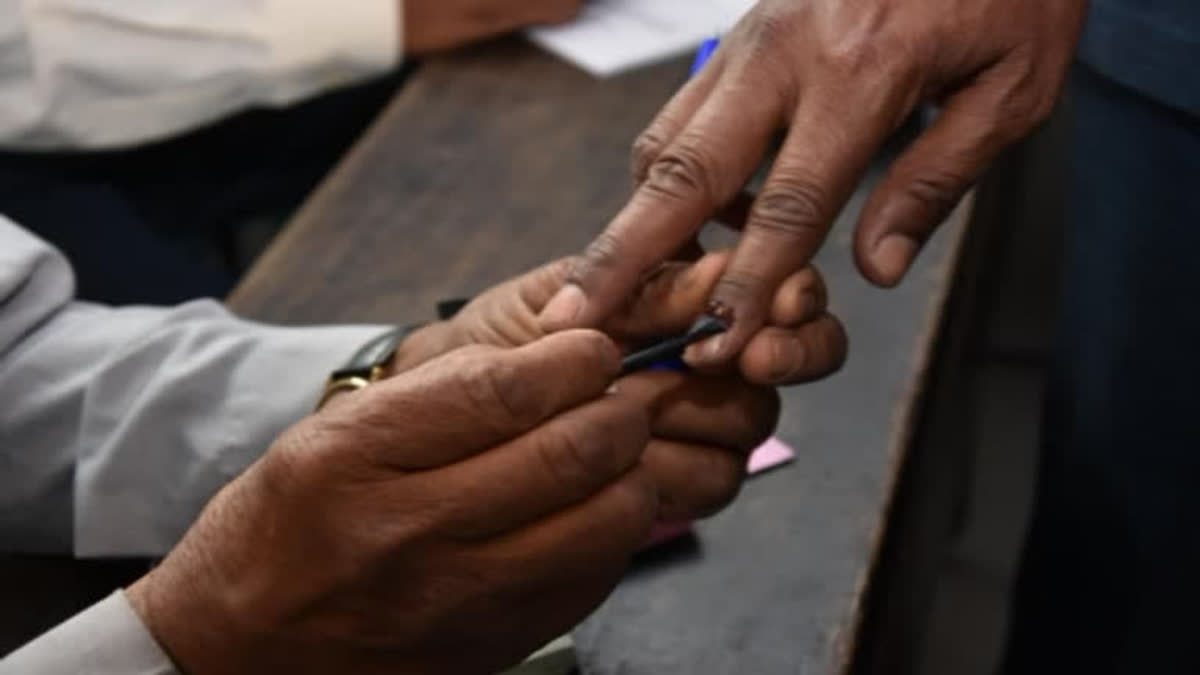Kolkata: Sandip Haldar, 24, has made it back to his village of Helencha near the Bongaon border with Bangladesh in West Bengal's North 24 Parganas just a day ahead of the crucial rural polls from the restaurant where he works as a cook's understudy in far-away Visakhapatnam. Haldar is one of tens of thousands of semi-skilled and unskilled youth from his district who work outside their village as far away as Andhra Pradesh and Kerala, to help out families struggling to earn a living from small, often uneconomic farms.
I had to come back home I was getting phone calls from friends in all major parties, asking me to come back and vote for the panchayat polls. The candidates have known us from infancy and expect us boys who work outside to come and be here on voting day, said Haldar as he lifted his new moulded plastic suitcase, a gift from his restaurant owner-employer on his shoulder and jumped on to a rickshaw which will take him on the last leg of his nearly 1,000 km journey home by train and bus.
A population boom which has seen the state's population density increase 3.44 times between 1951 and 2011, the last time a census was conducted, has also eroded farm sizes reducing it to an average of just 0.77 hectares. Despite Bengal being one of the most fertile deltas in Asia, tiny farms and falling agricultural prices have forced many village youth to migrate outwards in search of greener pastures.
Shrinking farm sizes and lack of sufficient new labour-intensive industry which can absorb the excess rural workforce results in migration of blue-collar labour some of it within the state and some intra-state. Those migrants who go out as lone males or have land holdings in rural Bengal tend to be politically more connected, while those who migrate with their families or with little or no land in the state find their political interests here waning, Dr Pronab Sen, well known economist who was the first Chief Statistician of the Indian government, told PTI.
The last census in 2011 estimated that nearly 5.8 lakh people migrated from West Bengal to other states in search of work, the fourth largest stream of internal migrants from any state after UP, Bihar and Rajasthan. Analysts believe the number has since gone up, but in the absence of verifiable data, educated guess-estimates place it at over 2 million.
Sujit Mondal, 51, a master-mason in Delhi is also going back home to Malda to vote and to be with his parents. However, this time round his wife and sons who live with him in Delhi's Tughlakabad area are not travelling with him. Everyone cannot make it and the party I am voting for will anyway win, so their (his family members) votes need not be cast, he reasoned while transiting through Kolkata.
Bengal's other migration stream of up-market, hi-tech and highly paid professional workers who now thrive in cities like Bengaluru, Hyderabad and Gurgaon are of course a different breed, who according to political pundits have far lesser interest in participating in politics back in Bengal.
Most of these blue collared migrants come from districts like North and South 24 Parganas, Murshidabad and Nadia, they used to travel to Delhi and Maharashtra for work earlier but now Southern states are a big draw, especially Kerala where they work as replacement workers in construction and agriculture as locals migrate further west to the Gulf, said Dr Samata Biswas, a researcher in migration flows with Calcutta Research Group, who is also on the faculty of the 200-year-old Sanskrit College and University.
Understanding the political importance of these migrant workers, the Left led by CPI(M) has mobilized its workers at railway stations through which they pass on way home, to campaign among them. While TMC and BJP have mobilised its cadres to influence families to call back their sons to vote on July 8, the date for the panchayat polls in the state.
The Left parties in their manifesto for the Bengal rural polls have even promised a safety net for migrant labourers of the state, while claiming their numbers have now risen to 10 million.
Ashok Lahiri, former chief economic advisor to the Indian government and now a BJP MLA in West Bengal told PTI that while numbers on the size of the migrant population were hard to get, one gets a sense of the dimension of this migrant workforce from the profile of victims who died in the Coromandel train crash last month at Balasore. Most of them were going South to work.
Lahiri, who is campaigning for his party's nominees in the panchayat elections, said there was a lot of enthusiasm among them (migrant workers) to come back and vote. Local loyalties, the excitement of being part of the voting exercise besides the opportunity to be with family and friends is what has brought him and many of his friends back, said Haldar.
However, money is important if I had wrangled the work visa to Oman to work on a big building contract I knew about, I would not have taken the train from Delhi But Malda is me and politics in my village runs in our blood, said Mondal with a wry smile as he got onto the Gour Express from Kolkata's Sealdah which would take him home and to the vote. (PTI)



